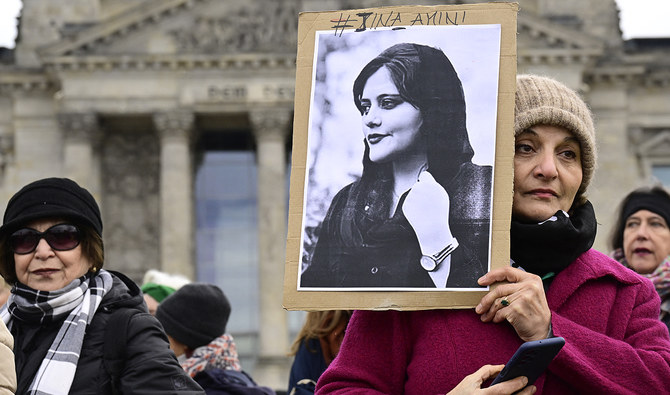Clampdown and grief as Iranians remember Mahsa Amini
Amini, a 22-year-old Iranian Kurd, died a few days after her arrest by religious police for allegedly violating the strict dress code for women in force since shortly after the 1979 revolution. Her family says she died from a blow to the head but this is disputed by Iranian authorities.
Anger over her death rapidly expanded into weeks of taboo-breaking protests which saw women tearing off their mandatory headscarves in an open challenge to the Islamic republic’s system of government under supreme leader Ayatollah Ali Khamenei.
But after several months, they lost momentum in the face of a crackdown that saw security forces kill 551 protesters, according to Norway-based Iran Human Rights (IHR), and arrest more than 22,000, according to Amnesty International.
Iranian authorities say dozens of security personnel were also killed in what they describe as “riots” incited by foreign governments and hostile media.
Seven men have been executed after being convicted in protest-related cases.
Campaigners say the authorities have renewed their crackdown in the runup to the anniversary, putting pressure on relatives of those killed in the protests in a bid to stop them speaking out.
New York-based Human Rights Watch said family members of at least 36 people killed or executed in the crackdown had been interrogated, arrested, prosecuted or sentenced to time in prison over the past month.
“Iranian authorities are trying to impose a chokehold on dissent to prevent public commemoration of Mahsa Jina Amini’s death in custody, which has become the symbol of the government’s systematic oppression of women, injustice and impunity,” said HRW’s senior Iran researcher, Tara Sepehri Far.
The two journalists who did the most to publicize the Amini case — Niloufar Hamedi and Elahe Mohammadi who respectively reported from her hospital and funeral — have been held in prison for almost a year. Another reporter, Nazila Maroufian who interviewed Amini’s father Amjad, has been arrested repeatedly.
Amjad Amini has told Persian media based outside Iran that he plans to hold a commemoration for his daughter in their hometown of Saqez in Kurdish-populated western Iran later Saturday.
Outlets, including Prague-based Radio Farda, said he was summoned by intelligence officials after his announcement. He was not arrested but one of Amini’s uncles, Safa Aeli, was detained in Saqez on September 5.
According to Kurdish-focused news outlet Hengaw, the government has sent additional security forces to Saqez and other towns in western Iran that could become flashpoints.
While some women are still seen walking in public without headscarves, particularly in wealthy, traditionally liberal areas of north Tehran, the conservative-dominated parliament is currently considering a draft law that would impose far stiffer penalties for non-compliance.
“The Islamic republic is doubling down on repression and reprisals against its citizens and seeking to introduce new and more draconian laws that severely restrict further the rights of women and girls,” said Sara Hossain, the chair of the UN fact-finding mission set up to investigate the crackdown.
Under the slogan “Say her name!,” Iranian emigres are expected to hold commemorative rallies, with large demonstrations expected in Paris and Toronto.
Amnesty International accused Iran’s authorities of committing a “litany of crimes under international law to eradicate any challenge to their iron grip on power” and lamented that not a single official had been even investigated over Mahsa Amini’s death or the crackdown.
“The anniversary offers a stark reminder for countries around the world of the need to initiate criminal investigations into the heinous crimes committed by the Iranian authorities under universal jurisdiction,” said Amnesty’s Middle East and North Africa deputy director, Diana Eltahawy
.jpeg)






.jpeg)
Comments
Post a Comment